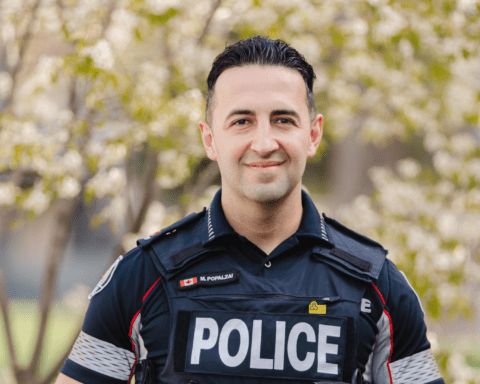Americans once again finding themselves in a state of election-induced dread. Before President-elect Joe Biden was declared the winner, uncertainty was in the air for several days, as vote counters dealt with an unprecedented number of mail-in votes. U.S. citizens were looking for an escape, sometimes a literal one. Searches pertaining to moving to Canada spiked in the United States, part of an upward trend that started around the spring of this year.
Dating site Maple Match has returned for the 2020 election season and is capitalizing on this dread. The previous iteration, which was launched in 2016, was a Tinder-style app matching Americans wishing to escape political turmoil with compassionate Canadians. The current site does not provide details on how it is supposed to work, nor does it inform the users of the relevant policies a foreigner would need to know before coming to Canada. There is merely a form for interested parties to sign up for version 2.0.
NCM reached out to Maple Match for further details, but no response came through.
It is one of the oldest jokes in the history of American elections. “If my (usually liberal) candidate doesn’t win, I’m moving to Canada,” as the refrain goes. The statement is usually a form of venting. But in 2016, and again in 2020, Donald Trump’s election campaigns added an extra sense of foreboding.
“If we continue to have a narcissist with a 4th grade vocabulary run our country, taking credit for the economy when the credit is due to the Obama administration our future is doomed,” said Bylinda Anderson from Montana on Twitter. She tagged her tweet with #MoveToCanada. User @yogicollines from North Carolina tweeted “Google search: mildest climate in Canada?”
There was at least one Trump supporter looking to move in case Joe Biden wins. Brandi Gibson from Indiana tweeted: “Well might be moving to Canada If Biden wins lol see ya.”
Immigration, Refugees and Citizenship Canada’s (IRCC) numbers do show a steady increase in the rate of American immigration since 2015. There is a small spike of new permanent residents between the years 2017 and 2018, from 9,140 to 10,905. That is 1,765 more Americans when in previous years, the increase was in the hundreds. It is, of course, impossible to know if this was due to Donald Trump’s term in office, and it should be noted that between the years 2018 and 2019, the number of new immigrants was smaller by 125 people.
A simple guide
For any Americans out there still pondering a move north of the border, here is a simple guide to becoming a Canadian citizen that Maple Match won’t give you. And the answer is, no, you can’t just marry a Canadian and, poof, you are naturalized. A Canadian’s American spouse still has to go through the same process as everyone else. “All applications from around the world are assessed equally against the same criteria,” says Peter Liang, spokesperson for IRCC.
Americans, like all foreigners, can apply through a number of categories in order to become Canadian, including economic, family, refugees and protected persons, and humanitarian. The economic class encompasses skilled workers, tradespeople, and entrepreneurs, among others.
The family class allows people to sponsor family members. Canadian citizens can only sponsor partners, spouses, parents, children, parents and grandparents. Siblings, aunts, uncles and cousins cannot be sponsored. Canada acknowledges that there are people around that world who live in dangerous situations. They may look to Canada for safety. That is why the government allows people to come in as refugees.
And, no, you can’t claim refugees status if you hate your head of state. You have to have fled your country because of a well-founded danger of persecution. This is not to be mistaken for the humanitarian and compassionate grounds category, which is for people who would not normally be eligible for permanent residence in Canada. The government considers things like family ties to Canada, if any children involved would be affected, or health factors.
Potential escape plans are further complicated by the global pandemic.
“Due to Canada’s current travel restrictions, which were put in place to stem the spread of COVID-19 in March 2020, most travellers who have a valid visitor visa or electronic travel authorization (eTA) cannot travel to or enter the country at this time,” Liang reminds.
Mansoor Tanweer is New Canadian Media’s Local Journalism Initiative reporter on immigration policy. An immigrant himself, he has covered municipal affairs and the Brampton City Council in addition to issues relating to newcomers over several years.






Hi